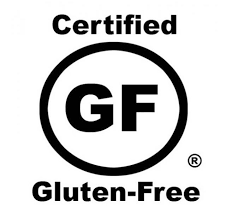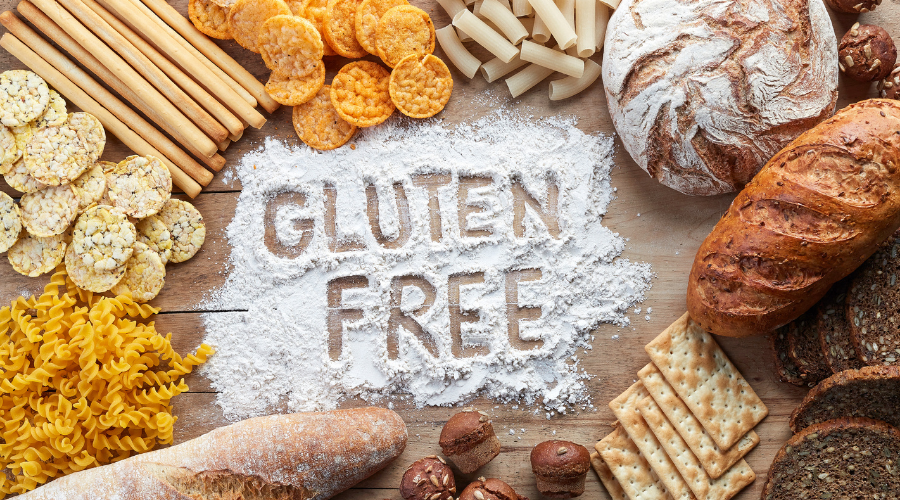Have you ever wondered why so many people are switching to a gluten-free diet? Could eliminating gluten really be good for you, or is it just another fad for millennials? In this post, I am giving you all the details as to why people eliminate gluten from their diet and the benefits they gain from it. Find out for yourself if this is a fad you should try!
Celiac Disease
One of the most common reasons people eliminate gluten from their diet is because they are diagnosed with Celiac Disease. CD is an autoimmune disease that causes damage to the small intestine when people ingest gluten. Over time, this damage leads to an inability to absorb nutrients properly and can further lead to serious health problems. Unfortunately, there is no cure for CD and the only way to treat it is by following a strict gluten-free (GF) diet.
Wheat Allergy
Some people have an allergy to wheat-based foods. Wheat allergy is one of the most common food allergies. In this case, that person may follow a strict GF diet. Although they are not allergic to the other gluten containing grains, there is a high risk for cross-contamination in the manufacturing process and most find it safest to avoid gluten all together. So, when you hear someone say that they are “allergic to gluten” they may be referring to having a wheat allergy.
Gluten Sensitivity
Reasons people follow a GF diet if they are not allergic and do not have CD is because they have a gluten-sensitivity. This means when they ingest gluten, they have 1 or many of the below unwanted side effects:
- Bloating
- Abdominal pain
- Diarrhea or constipation
- Nausea
- Headache
- Joint pain
- Muscle Pain
- Brain fog
- Fatigue
Although there is no damage to the small intestines when someone is gluten sensitive, I think it is easy to see that it still causes them misery. If you are someone who has been suffering from any of the above symptoms, you should consider trialing a GF diet. Eliminating gluten for even a short 30 days is enough time to determine if your symptoms improve.
Research has shown that 3 million Americans have been diagnosed with celiac disease but that there is an estimated 18 million Americans who have gluten sensitivity. The worst part? Most of these people are unaware of their sensitivity and suffering daily without proper knowledge and/or diagnosis.
What is Gluten?
What exactly are people referring to when they talk about “Gluten”? Gluten is a mixture of proteins found in grains like wheat, barley and rye. It is what gives dough its’ elastic texture. When you mix gluten-containing flour and water, the proteins become sticky and form a glue-like consistency. The name gluten actually comes from its’ glue-like properties.
Foods that you will commonly find gluten in include:
- Wheat
- Rye
- Barley
- Bread
- Pasta
- Cereals
- Beer
- Baked goods and pastries
Over the last decade the gluten-free diet has become more popular and there is more awareness for the need of gluten-free options. Maintaining a gluten-free diet as never been easier! You will see the GF symbol on the menu at restaurants and on the packaging in the grocery store. It is important to be aware that not all GF items are actually 100% gluten free.
Look for the Certified Gluten-Free label. You will need to read the labels carefully on pre-packaged  foods and know what added ingredients may contain gluten. You can find a complete list of things to look for here.
foods and know what added ingredients may contain gluten. You can find a complete list of things to look for here.
Gluten does not contain any vital nutrients and therefore trialing a gluten-free diet is not harmful. Now, I don’t want to give anyone the idea that by eating a gluten-free diet, you are automatically eating a “healthy” diet. Just because it says it is GF, does not mean it is good for you or nutritious.
What can I eat?
Lastly, it is important to make sure you are eating a well-balanced diet that is full of fresh fruits, vegetables, protein, and carbohydrates. By eliminating gluten, you will drastically be reducing your carbohydrate consumption and you will need to replace at least a portion of this in the other foods you eat. There are carbohydrates found naturally in fresh fruits and vegetables, in beans and legumes, and in gluten-free grains and oats.
The best and most certain way to ensure that you have successfully eliminated gluten from your diet is by staying away from processed foods. Consuming fresh, whole foods, without additives or preservatives will not only ensure you are gluten-free, but it will also help you maintain a nutritious diet. You just might be surprised by how great you feel when you eliminate all of this from your body.
Decrease Inflammation
Eliminating gluten from your diet may make you feel 100x better within a matter of days to weeks. But there are also a few other things you can do to decrease inflammation in your body if you suffer from headaches, brain fog, joint pain, swelling in your feet/ankles, and/or IBS. Discover 3 Easy Inflammation Hacks to Boost Your Energy and Immune System. Reach out to our team if you have any questions about feeling better and living the healthy life you deserve!






